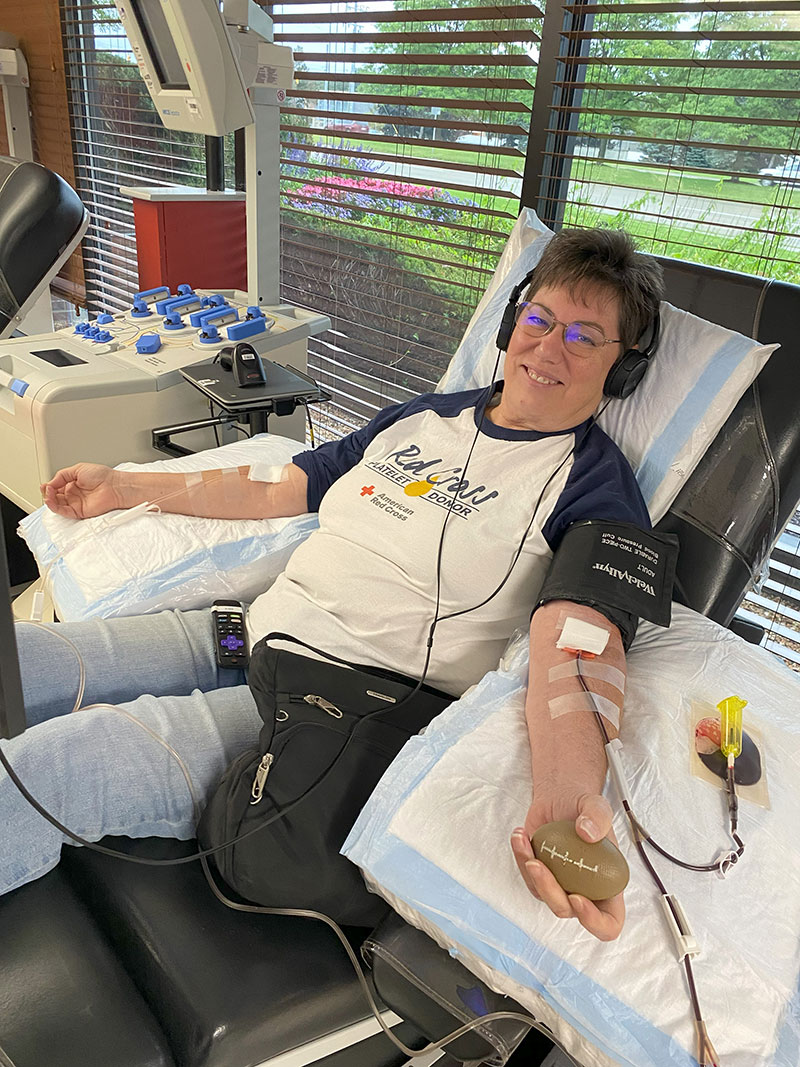Platelets play a critical role in the treatment of millions of Americans fighting cancer, chronic diseases and traumatic injuries. Every 30 seconds, someone needs platelets.
Susan George of Armada makes a donation of platelets every month to the American Red Cross in honor of her late husband, Lee, who died of cancer in 2015. He received platelets and whole blood transfusions as part of his treatment.
George is grateful to the donors who “gave me the gift of time with my husband” during his cancer battle.
“I thought of all the people who had taken the time out of their day to give blood for someone else – how they were there for us,” George said.
The process for giving platelets is more specialized and takes longer than a whole blood donation. Still, there is an urgent need for donors to give platelets.
“I never want someone to hear that (hospitals) don’t have blood when they need it. We just assume it will be there,” George said.
As the Red Cross continues to experience a national blood shortage, platelets and all other blood types are urgently needed. A platelet donation takes about two hours compared to a donation of whole blood, which takes about 8-10 minutes.
Also, platelets can only be donated at Red Cross donation centers (Michigan has eight locations) because the donation process uses an apheresis machine that will collect a small amount of blood from one arm, remove the platelets, and return the rest of the blood through the donor’s other arm; this cycle is repeated several times.
“I thought, who else can I help?” George said. “The need for platelets is so crucial. Yeah, it takes time but when you consider the people in need, it makes it easy to do.”
George uses the Red Cross Blood Donor App to make appointments and track her donations.
“I love the app because it shows me where my platelets have gone. One donation went to a children’s hospital in Indianapolis,” George said. “You see how many people you are helping.”
George said that knowing she is helping people fighting cancer like her husband did motivates her to keep giving.
“This is the most selfless gift you can give,” she said, “the gift of more time and hope for another family.”
By Alicia Dorr, regional communications manager








